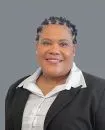- in Africa
- in Africa
- in Africa
- in Africa
- within International Law, Law Department Performance and Environment topic(s)
Copyright judgments are rare in South Africa and findings of the Copyright Tribunal are even rarer. This makes the recent judgment of Judge Moshoana, on behalf of the Copyright Tribunal (part of the High Court of South Africa, Gauteng), worth reporting. The case which dealt with the request for, and granting of, compulsory licenses is Allcopy Publishers (Pty) Ltd and others v Mark Phillips, 7 March 2025.
The facts
On 9 June 2016, a certain Mark Phillips (just a regular local, not to be confused with Horseman, who was once wedded to Princess Anne) entered into a written agreement with a company called Allcopy Publishers (Pty) Ltd (Allcopy). In this agreement, Phillips granted Allcopy the exclusive right to distribute the following for Grade 8 and 9 Mathematics:
- Textbooks;
- PowerPoint presentations; and
- E-Publications
The agreement was valid until 29 February 2024, however, the relationship between Phillips and Allcopy began to show 'undesirable cracks'. As a result, the matter ended up at the Copyright Tribunal.
The Copyright Tribunal - Judge Moshoana's findings
The matter was handled by Judge Moshoana. Here are some of the judge's observations and findings:
We don't really do bun fights
Judge Moshoana said that the case 'epitomises what the Tribunal characterises as avariciousness by one author of a literary work that was allegedly jointly co-authored. This type of bun fight has never, in the past, been presented to the Copyright Tribunal.'
We don't get to consider cases like this very often – maybe once every 55 years
The judge alluded to the fact that the Copyright Tribunal doesn't get to sit very often, as well as the fact that South Africa has for many years already (nearly 30) had a constitution. The judge said this:
'The only time a Commissioner of Patents expressed an opinion on a similarly worded section was about 55 years ago. It is therefore apposite for this Tribunal to provide, as it were, an interpretation of Section 33 within the prism of the Constitution.'
The purpose of the Copyright Tribunal
The judge said that the purpose of the Copyright Tribunal is to ensure that there is no 'abuse of monopoly rights'. This means that the Copyright Tribunal must seek to:
'Avoid a situation where an author is seeking, in unreasonable circumstances, to exercise absolute control of the right to produce his or her work... in the absence of legislative provisions, the claimed monopoly cannot magically emerge'.
Some precedent from Canada
In the absence of anything useful from South Africa, the judge made reference to the Canadian case of Smith, Kline & French v Attorney General of Canada. In this case, the Federal Court of Canada dealt with the issue of whether the granting of a compulsory licence in the context of a patent is an 'unconstitutional deprivation of property'. The Canadian court said this:
'Parliament's object was to deny a monopoly with respect to inventions of medicine or processes for preparation or production of medicine where there is a willing applicant who seeks a licence.'
Application to South Africa – no absolute right/control
Judge Moshoana said that it 'cannot be correct...that Mr Phillips has absolute control of his works, such that he can do what he wishes without any form of control. This is a legislatively conferred right and not an innate right or common law right. In terms of the Constitution, section 25, thereof authorises deprivation in terms of law of general application'.
The judge went on to say that the South African Copyright Act 'grants a monopoly for a period of 50 years plus. If the Act was to be interpreted to mean that others must wait for a period of 50 years plus before they could have a share of the market, then an untenable situation would arise'.
The claim of self-help
The judge rejected the claim that the parties seeking licences were guilty of self-help:
'The grievance of the applicants in this Tribunal is that they claim the need to be licensed, yet Mr Phillips refuses to licence them as he did for past years...(but) there is no evidence that the applicants gave themselves the required licence... they are before the Tribunal seeking an order to be licensed ... (this) does not amount to self help.'
The clean hands principle
The judge said that 'the suggestion was that, because the applicants had already infringed the copyright, they must be non-suited'. But the judge rejected this, on the basis that the matter is still sub judice.
A compulsory licence is in order
The judge was 'satisfied that the applicants have established the requirements in section 33(3) of the Act...the claim of the applicants is well-founded and deserves a declaration that a compulsory licence must be granted'.
An unusual but interesting case! It is encouraging to see the application of this rarely used but powerful legal remedy in South Africa, as it gives much needed legal guidance in understanding how our courts will approach the balancing of exclusivity of copyright and accessibility thereto, in the context of our Constitution.
The content of this article is intended to provide a general guide to the subject matter. Specialist advice should be sought about your specific circumstances.


